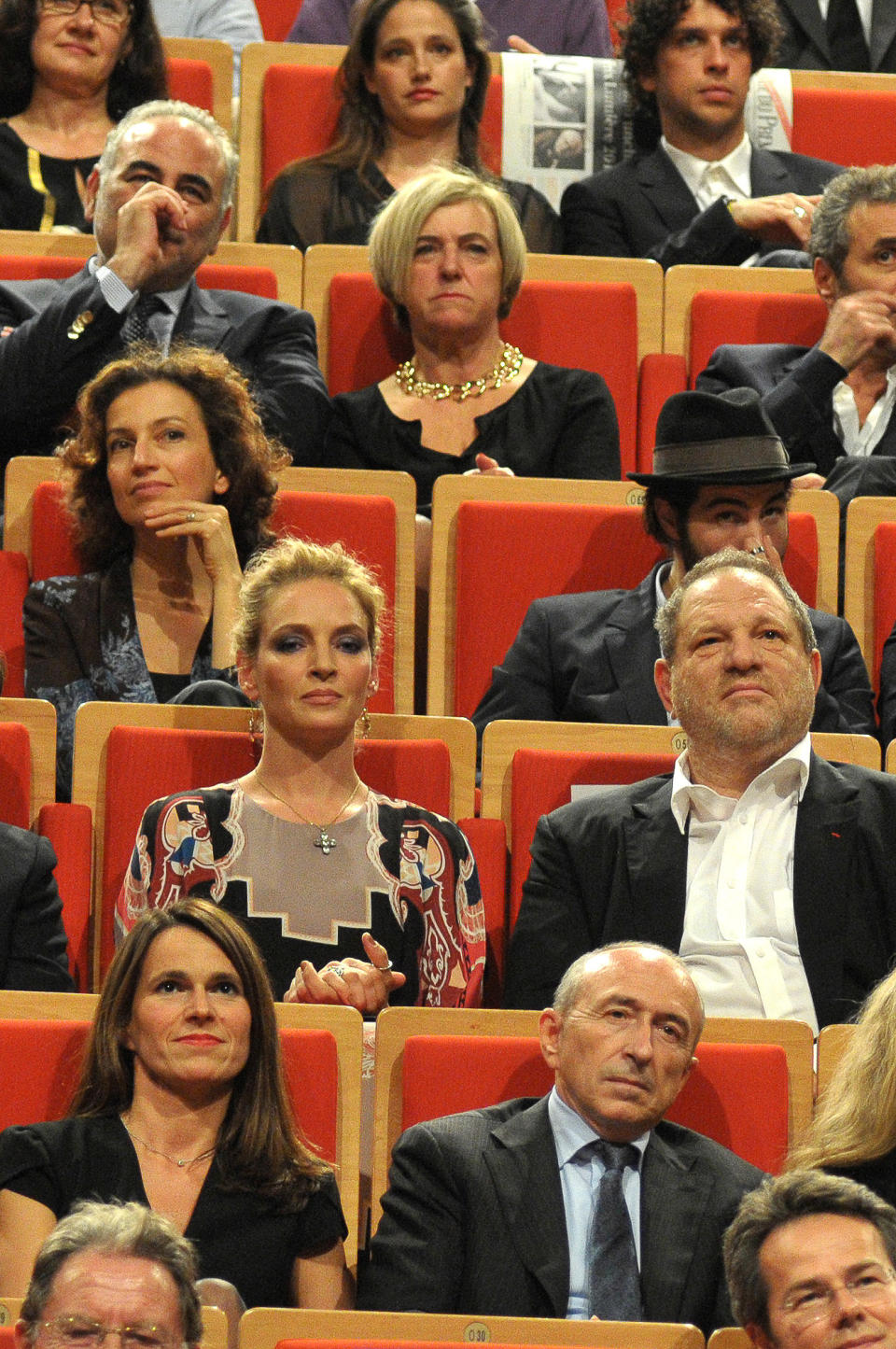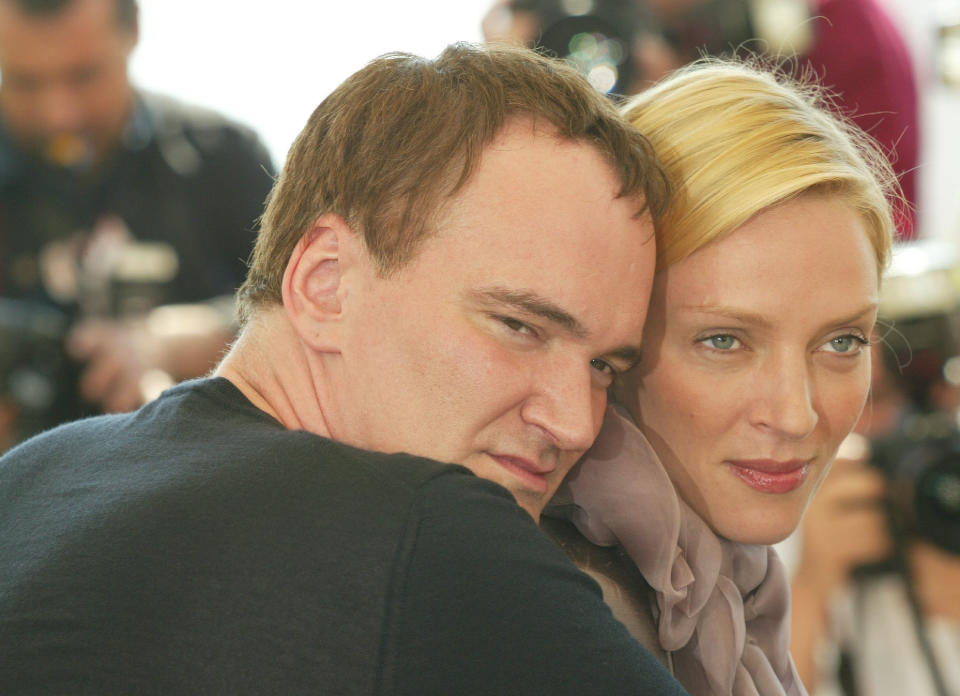Uma Thurman's anger, finally explained, underscores deep-seated violence in Hollywood's core
For those watching the unfolding of the Harvey Weinstein scandal last fall and the cascade of dark “open secrets,” there was one particular chilling and unforgettable moment. Caught on the red carpet, Uma Thurman — long held as a symbol of talent, beauty, grace, and staying power in Hollywood — showed a side rarely seen.
“When I’ve spoken in anger, I usually regret the way I express myself,” she says in the video, through gritted teeth. “So I’ve been waiting to feel less angry. And when I’m ready, I’ll say what I have to say.”

It would have been just as impactful if she had offered wise words of solace or revealed her own struggle, soon to be exemplified by the #MeToo hashtag and the launch of the Time’s Up movement. But at that moment caught on video, Thurman was nearly speechless with rage. Thurman is now ready.
The source of that rage is finally revealed in an article, featured (curiously) in the New York Times opinion section, though it is not a ghost-written first-person account but rather an interview/feature written by columnist Maureen Dowd.
In an unsettling story, Thurman goes into some detail about her history with Weinstein. It doesn’t take long for what now seems the inevitable, but no less jarring, account of Weinstein’s psychological priming and eventual physical attack on Thurman to unfold.
“He pushed me down,” she says in the Times article. “He tried to shove himself on me. He tried to expose himself. He did all kinds of unpleasant things. But he didn’t actually put his back into it and force me.”
Yet Thurman’s story goes on to describe another level, another face to the violence that women and anyone without power in the industry so often face behind the scenes of some of our favorite cultural artifacts — the works of Hollywood icon Quentin Tarantino, in this case.
Most notably, Thurman recounts being nearly killed in a stunt while filming Kill Bill. She says she repeatedly voiced her concerns about this particular stunt to the director, Tarantino, stating that she was uncomfortable and afraid, but he vehemently insisted that she do the stunt. With video evidence (the video can be seen on the Times article page) that took her 15 years to procure, it can be clearly seen that Thurman could have been killed in a car crash shot on film.
“The steering wheel was at my belly and my legs were jammed under me,” she says. “I felt this searing pain and thought, ‘Oh, my God, I’m never going to walk again,’” she says. “When I came back from the hospital in a neck brace with my knees damaged and a large massive egg on my head and a concussion, I wanted to see the car, and I was very upset. Quentin and I had an enormous fight, and I accused him of trying to kill me.”

In another Tarantino incident, Thurman details how the director — who once claimed the actress was his muse — also insisted on being her offscreen attacker during Kill Bill scenes in which she is both spit on and choked with a chain.
“Harvey assaulted me but that didn’t kill me,” Thurman says. “What really got me about the crash was that it was a cheap shot. … I had really always felt a connection to the greater good in my work with Quentin, and most of what I allowed to happen to me and what I participated in was kind of like a horrible mud wrestle with a very angry brother.”
Reactions to Thurman’s story so far have included shock and anger, particularly aimed at the revered director.
Weinstein & Tarantino should be investigated for any incidents during movies where women were physically assaulted and had been solicitated or assaulted by Weinstein, and both charged. Tarantino is complicit.
— Issa Lozada Vega (@IGLV_05) February 3, 2018
Won’t be able to look at those movies the same way. Maybe I’ll throw the disks in the trash. Besides the work the actors put into their art, I don’t want to support this
— Kenneth Mitchell (@weldon15) February 3, 2018
I'm so angry reading this. Quentin Tarantino, you suck. #TeamUma
— Susan PhD (@SusanHornePhD) February 3, 2018
Needless to say, Thurman’s relationships with both Weinstein and Tarantino were forever changed due to these violent attacks, plus the gaslighting and continuous lack of accountability.
Thurman admits to her own misgivings about how her public persona was in conflict with what she had experienced behind the opaque curtain of the silver screen. She suspected and feared that the perception of her career with men like Weinstein and Tarantino had misled other women into believing they could have the same without experiencing the violence she and so many others have.
“The complicated feeling I have about Harvey is how bad I feel about all the women that were attacked after I was,” she confesses in the Times piece. “I am one of the reasons that a young girl would walk into his room alone, the way I did. Quentin used Harvey as the executive producer of ‘Kill Bill,’ a movie that symbolizes female empowerment. And all these lambs walked into slaughter because they were convinced nobody rises to such a position who would do something illegal to you, but they do.”
Thurman’s story is just more evidence that, indeed, they do.
Read more from Yahoo Lifestyle
Rose McGowan’s new show is uncomfortable, and that’s the point
Uma Thurman Issues Ominous #MeToo Warning to Harvey Weinstein
David Schwimmer hopes to educate men with his short films about sexual harassment
Follow us on Instagram, Facebook, and Twitter for nonstop inspiration delivered fresh to your feed, every day.
